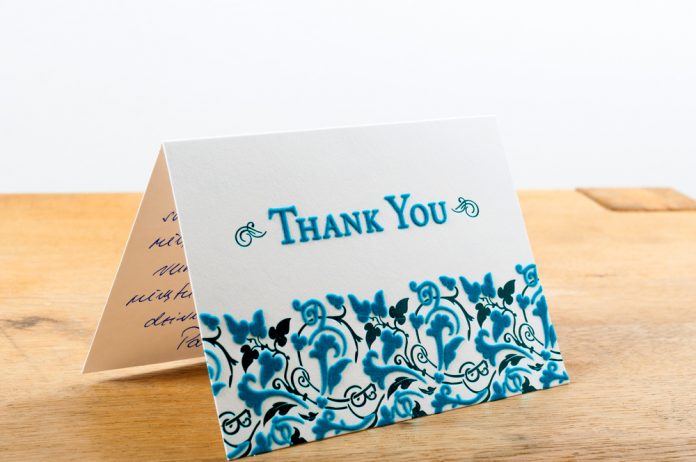
Countless possessions throughout history have been destroyed, but fragile pieces of paper have been protected. Meaningful handwritten words are worth reclaiming again and again. They’ve cemented business relationships, made and broken livelihoods, turned enemies into friends, and helped fan or quell the flames of war. They’re acts of authorship that bear the mark of history: letters from Napoleon to Josephine, Beethoven to his immortal beloved, Henry VIII to Anne Boleyn, George H. Bush to Barbara (during WW II), and many others.
Unlike today’s electronic communications saved somewhere in a cloud, on a drive, or not at all, the artistry and impact of handwritten missives are keepsakes. Take a moment to think of the last time you received a handwritten note or letter. A month ago? A year ago? Can you even remember one in recent times?
When I receive a handwritten note, I value the crisp sound of unfolding, the slight indentations where the scribe pressed a bit harder with the pen, and the paper’s texture. It’s not just a missive; it’s a tactile experience. I place the note on my bookshelf and – most important of all – I value the sender each time I glance in that direction. (There aren’t many, so they don’t take up much space.)
If that same message were delivered to me via email or text, I’d think, “Oh that’s nice,” then I’d hit delete and forget it. There’s something cherished about a handwritten note that makes the writer memorable and the receiver feel special. Yet, these niceties are all too rare in today’s harried and hurried culture.
Rarity creates value
Many companies identify themselves specifically as “relationship” businesses. Every business is (and should be) a relationship business. People interact with people – not with companies or computers. It’s easy to think of customers or clients as nothing more than consumers who simply buy and sell products and services, rather than see them as individuals with unique wants, needs, feelings, and concerns.
Emails and texts are commonplace, cost less, and often thoughtless. They certainly have an important place and function when used appropriately, but they’re rarely notable and have little lasting value. When you send a personal handwritten note or letter of gratitude, respect, or appreciation, your conveyance of value is magnified. You took the time to write, chose each word carefully, placed the note in an envelope, and posted it. That says to the recipient, “You’re important to me.”
Find opportunities to make it personal
Studies show that it’s six times more expensive to attract a new customer than to retain an existing one. Use the powerful tool in your relationship toolbox – the handwritten missive. Make it brief, authentic, and personal. (Don’t include your business card; that would appear too sales-objective.) As an added touch, hand address the envelope and affix an interesting postage stamp.
Imagine getting a handwritten note of appreciation from one of your colleagues after your first engagement. The likelihood of that relationship continuing is greatly heightened. Here are just a few examples of how you can strike gold in your relationships, so people you value don’t grow distant by the gigabyte:
- Express your thanks for a job interview, reiterating your interest in the position, giving one or two reasons you want to work with (not for) the company, and thanking the interviewer once again for his or her time.
- Thank the person who referred you, even if it’s an executive recruiter.
- Reconnect with someone you met at a recent networking event.
- Add a personal touch to long-term clients’ milestones, perhaps on each anniversary of the date they first engaged you.
- Let lapsed clients know you miss them, bringing you to the forefront of their thoughts.
- Craft a thoughtful note to potential clients highlighting the benefits you offer that competitors can’t match.
- Express kudos for a job well done.
- Make sincere amends if you can’t apologize in person.
- Send a note of sympathy or wishes for a speedy recovery.
- Show appreciation for a gift or special favor.
- Honor the Fourth of July or Thanksgiving. Why wait for Christmas as everyone else does?
- Send a missive. . . just because!
In a culture where so much communication has become merely utilitarian, these tangible, thoughtful acts of investment, remembrance, and appreciation remind the people you care about that they matter. Start using the 27 bones in your hand so people you care about will use the 43 muscles in their faces to smile.
(Parenthetically… If your handwriting is poor, try printing. If that still doesn’t look right, let old school meet new school. Choose from a large selection of handwriting styles on your computer or find online services for large, personalized-looking mailings. Although they won’t replicate your handwriting, they’re the next best thing.)




